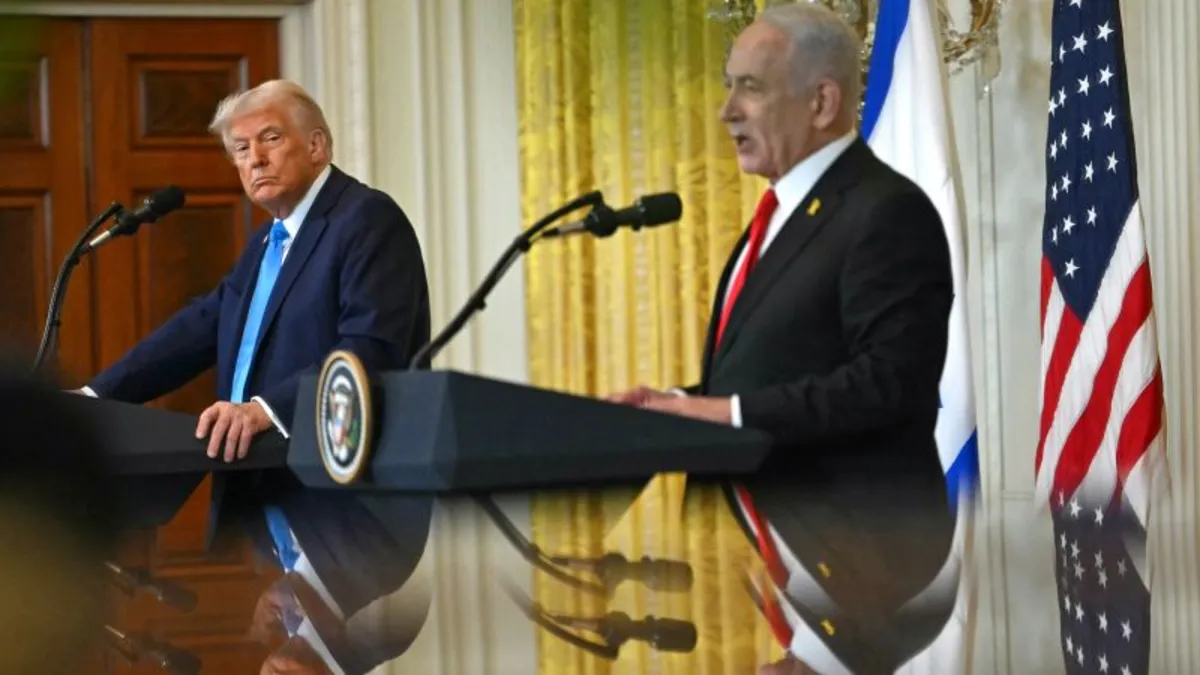
As Israeli Prime Minister Benjamin Netanyahu prepares to meet with President Donald Trump at the White House this Monday, the two leaders will engage in discussions about a Middle East that has experienced substantial shifts. Trump has indicated that a potential deal to end the ongoing war in Gaza is on the horizon. However, the proposals on the table present political challenges for Netanyahu, whose approach has notably evolved in the wake of recent events.
In the aftermath of the October 7, 2023 attacks on Israel, Netanyahu's government has executed a series of bold military operations, targeting locations previously considered untouchable. With Israeli jets and special forces conducting missions across regional capitals—ranging from Doha to Tehran and Damascus—the scars of Netanyahu's ambition to reshape the Middle East are evident. Speaking at the United Nations General Assembly last week, Netanyahu boasted about Israel's military achievements, claiming, “We’ve hammered the Houthis, crushed Hamas’s terror machine, and deterred Iran’s militias.”
The current conflict in Gaza is set to mark its second anniversary next month, making it the longest war in Israel's history. In contrast, Netanyahu's previous military engagements, such as Operation Pillar of Defense in 2012, were characterized by their brevity. When Netanyahu assumed office in 2009, he aimed to eliminate Hamas, yet his tenure has often been marked by a cautious security policy that was criticized for its restraint.
The unexpected and deadly Hamas-led attack on October 7 served as a pivotal moment for Netanyahu, prompting him to assert that “we are going to change the Middle East.” This marked a departure from his historically cautious approach. Analysts note that Netanyahu has undergone a significant transformation, trading in his risk-averse tendencies for a more proactive and adventurous security strategy. Mazal Mualem, author of “The Netanyahu Code,” emphasizes that the attack was a “wake-up call” that pushed him to distance himself from the security establishment's warnings.
Netanyahu's leadership is now complicated by pressures from his coalition partners, particularly the far-right allies Itamar Ben Gvir and Bezalel Smotrich, who oppose negotiations with Hamas and advocate for the permanent occupation of Gaza. Their influence has shackled Netanyahu's strategic options, especially as Trump’s proposal hints at a recognition of Palestinian statehood, which they vehemently oppose.
Despite his military successes, Netanyahu remains haunted by fears of his political legacy and his ongoing corruption trial. His past reluctance to make sweeping changes has been replaced by a desperate attempt to cement his place in history as a decisive leader. However, critics argue that this drive may lead him to adopt risky strategies, likening him to a desperate gambler.
As Netanyahu's military operations continue, they have yet to yield the decisive victory necessary to rehabilitate his political standing. While initial public support for the war was robust, it has significantly waned over time, and Israel's international legitimacy has come under threat due to potential sanctions and increasing calls for Palestinian statehood.
The upcoming meeting with Trump carries significant implications for Netanyahu's future strategies. Although the Trump administration has generally supported Israel's military actions, it has also imposed surprising limitations, compelling Netanyahu to navigate a complex landscape. The president's fluctuating stance suggests that the outcome of their discussions may prompt Netanyahu to reassess his aggressive military posture in favor of a more diplomatic approach.
In summary, the meeting between Netanyahu and Trump represents a crucial juncture for Israel's leadership and its approach to the ongoing conflict in Gaza. As the political landscape evolves, so too will the strategies and decisions that shape the future of the region.